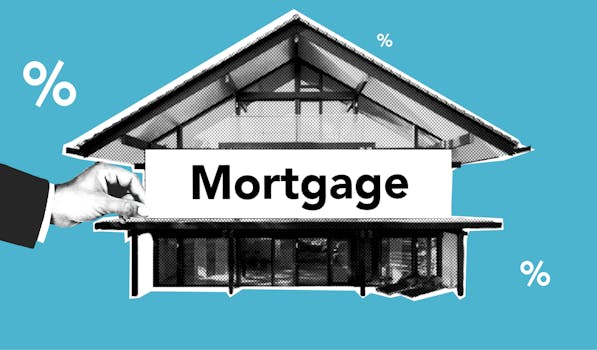Companies with the best and the worst technicals.
Lists of companies in NSE500 with the best and the worst technicals...
Lists of companies in NSE500 with the best and the worst technicals...
Lists of companies in NSE500 with the best and the worst fundamentals...
List of the latest important filings for NSE500....

An in-depth analysis of OPEC+’s recent output hike decision, its implications for...

Apollo Hospitals has launched a digital health spinoff aimed at revolutionizing healthcare...

Anticipated rate cuts by the Federal Reserve by 2025 are set to...

The European Central Bank’s (ECB) Sintra Forum, held annually in Portugal, offers a critical platform for economic discussion among global financial leaders. In the latest forum, ECB President Christine Lagarde addressed pressing concerns surrounding inflation, trade, and growth prospects in the Eurozone, setting the tone for future monetary policy.
Inflation remains a central challenge in Europe, with recent data indicating an annual inflation rate of 4.3% as of June 2025. Despite a downward trajectory from the highs of 9.1% witnessed in late 2022, Lagarde emphasized that inflationary pressures persist, particularly due to heightening energy costs and supply chain disruptions exacerbated by geopolitical tensions, notably stemming from the ongoing conflict in Ukraine.
During her address, Lagarde noted, "While we have made significant progress in curbing inflation, the unpredictable nature of global energy markets means we must remain vigilant. The ECB will continue to adjust our monetary policy tools to maintain price stability effectively." The forum echoed sentiments of caution, as ECB officials highlighted expectations for inflation to stabilize around the 2% target only by late 2026.
The intricacies of global trade were also a focal point during the Sintra Forum. Speakers discussed the potential impacts of rising trade barriers and protectionist policies that have become increasingly prevalent. Lagarde remarked, "Trade is a backbone of growth in the Eurozone. It is vital that we foster international cooperation to mitigate the adverse effects of trade disputes and tariffs. The prolonged uncertainties surrounding U.S.-China relations and the UK's post-Brexit agreements are areas we must navigate carefully."
Trade data indicates a slight contraction in exports from the Eurozone, down 1.5% in the first quarter of 2025, reflecting broader international economic headwinds. Lagarde suggested that re-establishing stable trade relations could be instrumental in revitalizing growth, urging participants to consider the benefits of multilateral trade agreements.
With inflation and trade challenges in mind, the growth outlook for the Eurozone remains cautiously optimistic. The ECB’s recent projections forecast GDP growth of 2.1% for 2025. Lagarde pointed to signs of recovery in sectors such as technology and renewable energy, which are poised to drive future growth. "Investments in green technologies and digital transformation will be paramount for a sustainable recovery," she stated.
In particular, the investment in renewable energy infrastructure is expected to create job opportunities and stimulate economic activity. The EU has committed to allocating €500 billion over the next decade towards sustainable projects, which is anticipated to yield both economic and environmental benefits.
Lagarde's insights highlighted the importance of maintaining a delicate balance in monetary policy. As inflationary pressures persist, the ECB has continued to communicate a gradual approach to interest rate adjustments, with expectations for a potential increase in the benchmark rate from the current 3.5% by early 2026.
In her remarks, Lagarde stated, "The ECB will remain data-dependent, leveraging economic indicators and market dynamics to guide our monetary policy decisions. The aim is to sustain recovery while preventing inflation from getting entrenched in our economic framework."
However, the path forward is not without challenges. High public debt levels, exacerbated by pandemic recovery spending, pose risks to fiscal stability. An OECD report has warned that Eurozone public debt could reach an average of 95% of GDP by 2026 if not addressed. Lagarde emphasized the necessity for fiscal discipline and proactive measures to ensure long-term sustainability.
Additionally, labor market disparities across member states present ongoing challenges. The unemployment rate in the Eurozone hovers around 7.4% but varies significantly, with countries like Spain experiencing rates as high as 13%, while Germany sees much lower levels. Ensuring equitable job creation and addressing structural unemployment were highlighted as vital collaborative goals for member states going forward.
Lagarde concluded her address by reiterating the significance of unity among member states, asserting that addressing these economic challenges requires a collective effort. "The resilience of the Eurozone will depend on our ability to work together, share best practices, and implement policies that not only target inflation but also foster inclusive growth," she stated, emphasizing that collaboration across borders would be crucial in achieving the Eurozone's financial stability and growth.
The Sintra Forum continued to be a beacon for dialogue among economists and financial leaders, with Lagarde set to engage in further discussions throughout the year as the ECB navigates the complex economic landscape ahead.

Torrent Pharmaceuticals Limited's recent acquisition of JB Chemicals for ₹11,900 crore marks...

An analysis of the strategic considerations for the Indian government as it...